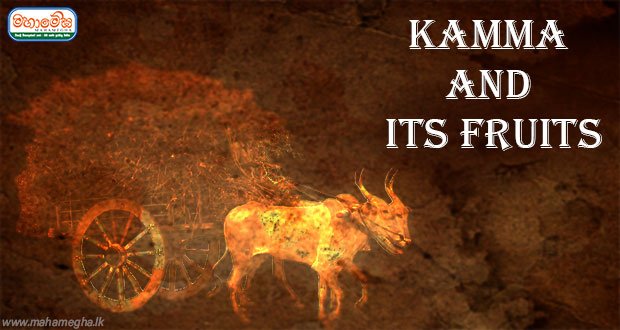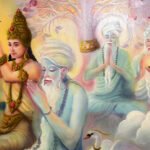The arising of the Omniscient One, Gotama the Buddha, foremost in compassion and love for all beings, the one who possessed the qualities expected of a fully accomplished and fully qualified spiritual teacher, is a rare occurrence in the world. Groomed to be heir to the throne, his encounter, and insight into the universality of suffering was so compelling that he lost all interest in the pleasures and privileges of rulership. Renouncing the worldly life, without anyone’s help he perfected noble virtue, concentration, wisdom, and liberation under the Bodhi Tree. The Fully Enlightened Buddha dwells in the world detached from the world, with all taints abandoned, free from birth, old age, and death, like a lotus flower that is “born in the water and grown up in the water, but rises up above the water and stands unsoiled by the water.”
Doṇa Sutta – Aṅguttara Nikāya
Through the perfect realization of the world, the Buddha explains: “Monks, there are these four inconceivable matters that one should not try to conceive; one who tries to conceive them would reap either madness or frustration. What four? 1. The domain of the Buddhas (buddhavisaya); 2. The domain of one in jhāna (jhānavisaya); 3. The result of kamma (kammavisaya); 4. Speculation about the world (lokacintā).
Acinteyya Sutta – Aṅguttara Nikāya
Although an ordinary mind is incapable of grasping and comprehending these matters, they were not, however, concealed and inconceivable to the Perfect One. His arising is the manifestation of great vision, light, and radiance. He has fully awakened to “whatever is seen, heard, sensed, cognized, reached, sought after, and examined by the mind,” and therefore whatever he teaches “is just so and not otherwise.” Hence, he is called the Tathāgata.
Loka Sutta – Aṅguttara Nikāya
As the Tathāgata, he possesses the “ten powers of the Tathāgata” and “the four knowledges of intrepidity,” which enable him to roar his “lion’s roar” in the assemblies. Of these ten powers, the second power is that the Tathāgata “understands as it actually is the results of kamma undertaken, past, future, and present, by way of possibilities and causes.”
Mahāsihanāda Sutta – Majjhima Nikāya
As mentioned, the result of kamma is an inconceivable matter; nevertheless, the Buddha has taught on kamma to his disciples to the extent that is helpful to the practice. He explains: “It is volition, monks, that I call kamma (cetanāhaṃ bhikkhave kammaṃ vadāmi). For having willed, one acts by body, speech, or mind.” Kamma means action springing from intention, as bodily deeds, speech, and thoughts.
Nibbedhika Sutta – Aṅguttara Nikāya
Our deeds generate kamma, and when the circumstances are suitable, the kamma ripens and produces the appropriate fruits, bringing misery or happiness in dependence on the ethical quality of our original action. The governing factor in the process of the round of rebirths known as saṃsāra, “the wandering on,” is the law of kamma and its fruits, which reigns over all sentient existence. The kamma we create may ripen in this very life, in the next rebirth, or in some subsequent birth. It is clear that as long as we travel on in the cycle of rebirth, the kamma accumulated over many previous births may ripen and yield its due results. Thus, the Buddha emphasizes that “beings are the owners of their kamma; they have kamma as their origin, kamma as their relative, kamma as their resort; whatever kamma they do, good or bad, they are its heirs.”
Saṃsappanīya Pariyāya Sutta – Aṅguttara Nikāya
The cause of rebirth is the arranging of kamma to bear fruit (bhava). Kamma determines the sphere into which rebirth takes place. Unwholesome kamma conduces to an unfortunate rebirth in the plane of misery and painful results, wholesome kamma to a fortunate rebirth and pleasant results. Unwholesome kamma is action rooted in mental states of greed, hatred, and delusion. Wholesome kamma is action rooted in mental states of non-greed, non-hatred, and non-delusion. The Blessed One does not leave us guessing as to what kinds of deeds create wholesome and unwholesome kamma but instead provides a precise classification as to right and wrong conduct. He outlines the ten courses of wholesome and unwholesome actions: three of body, four of speech, and three of mind. The three courses of unwholesome bodily action are the destruction of life, stealing, and sexual misconduct. The four courses of unwholesome verbal action are false speech, divisive speech, harsh speech, and idle chatter. The three courses of unwholesome mental action are covetousness, ill-will, and wrong view. The three courses of wholesome bodily action are abstaining from the destruction of life, abstaining from taking what is not given, i.e., abstaining from stealing, and abstaining from sexual misconduct. The four courses of wholesome verbal action are abstaining from false speech, abstaining from divisive speech, abstaining from harsh speech, and abstaining from idle chatter. The three courses of wholesome mental action are non-covetousness, non-ill-will, and right view.
The bliss of heaven and torments of hell are not things to be gained or avoided by mere wish or prayer but are instead experienced according to one’s own deeds. The Buddha very clearly and beautifully explains this with similes to Asibandhakaputta, the headman, in Gāmaṇisaṃyutta:
Suppose there is a person who engages in the ten kinds of unwholesome actions. Even if many people came together and prayed: “May this person be reborn in a good destination, in a heavenly world after death!” that person still would not be born in a good destination, a heavenly world after death. Just as if someone were to hurl a massive boulder into the middle of a lake, and people would gather around and pray for the boulder to rise up out of the lake, but by those prayers that boulder would not rise up out of the lake. So too, for a person who engages in the ten kinds of unwholesome action, even though people would gather around and pray for his rebirth in a good destination, he will be reborn in the plane of misery after death.
Moreover, suppose there is a person who engages in the ten kinds of wholesome actions. Even if many people came together and prayed: “May this person be reborn in a bad destination, in hell after death!” that person still would be born in a good destination, a heavenly world after death. Just as if someone were to submerge a pot of ghee or oil into the middle of a lake, and people would gather around and pray for the ghee or oil to sink, but by those prayers that ghee or oil would not sink, instead it would rise. So too, for a person who engages in the ten kinds of wholesome action, even though people would gather around and pray for his rebirth in a bad destination, he will be reborn in a good destination after death.
Asibandhakaputta Sutta – Saṃyutta Nikāya
Therefore, when we turn to the Buddha for guidance, he seeks to inspire in us a firm determination to reject unwholesome ways of living and to embrace the wholesome. The Buddha’s doctrine of kamma and its fruits thus places ultimate responsibility for our destiny in our own hands. He reveals to us how our moral choices and actions can become either a cause for pain or happiness.
The Buddha makes it very clear that beings take rebirth in accordance with their deeds, whereby they experience their good or bad results. When the results of kamma have been experienced, beings pass away to take rebirth elsewhere, yet again according to their accumulated kamma. All states of existence, however, from the torments of hell up to even the lofty celestial abodes, all are inherently impermanent, are bound to pass. For this reason, the Buddha does not place the final goal of his Teaching anywhere within the states of existence in saṃsāra, but instead accentuates the eradication of both good and bad kamma, the attainment of Nibbāna, by following the Noble Eightfold Path.
Written by a Venerable Nun Of
Mahamevnawa Anagārika Nun’s Monastery











Recent Comments